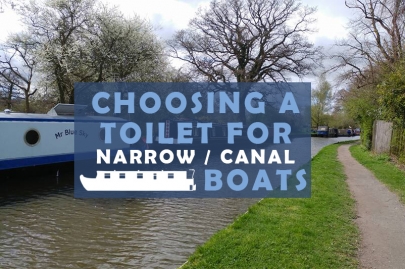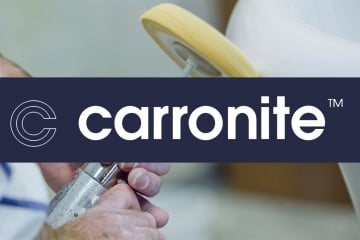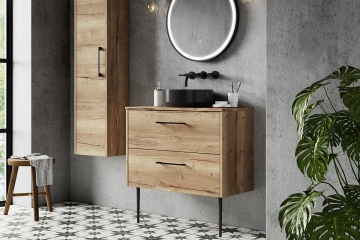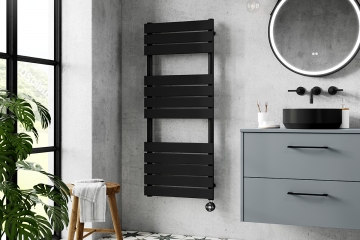Choosing a Toilet for a Canal Boat

Choosing a Toilet for a Canal Boat
Right so you've fully committed to your new holiday adventure.
You've watched a whole season of Tim and Prunella pootling along joyfully, you've plotted your route to include Llangollen, the Disneyworld of the narrowboater. You've omitted as many locks as possible whilst incorporating the highest possible ratio of 'Pull-In' Public houses. Your Jolly Roger is flying high, keeping your cheeky rebellious streak alive and kicking. You've learned how to grease the shaft and you have ascertained exactly who is Skipper and who is lock jockey and cabin boy etc and yet only now as you nervously step aboard Unsinkable 2 ( your family home for the next fortnight) does that little word pop into your brain toilet!
You'd been pushing it down each time it surfaced hadn't you? Which is why, before embarking on this voyage you had formulated a loose plan which fluttered and hovered around my number 1 helpful suggestion. But never fear because if you should fall in love with the salty life of a Seadog and begin to harbour a dream in which you are stoically perched at the helm in a full time and permanent position, then you may need a more up- close and personal delve into the secret life of narrowboat toilets.
The Bucket and Chuck it Approach.
Absolutely, categorically no!!
Never- but never- empty your bucket into the canal. Even the most laid-back boaters will all agree on this. Just the thought of the odd Captains log nudging silently against your bow is enough to have you running for the sick bucket (although I think that may be allowed overboard in an emergency).
Pooping in a Tesco carrier and posting it into a dog poop bin is also extremely frowned upon but would be a way to avoid the £100 fine from the Waterways.
Training your bladder and bowels to awaken at the sight of a canal side pub during hours is probably as reliable as the Rhythm method but can probably be tailored somewhat.
The Cassette Toilet/Porta Potti
Available in free-standing or fitted models and can also be obtained with a vacuum flush. Cheap to buy, free to empty and very easy to clean and maintain. Emptying stations are dotted along the canals so it's just a case of locating them, mooring up as close as possible, carrying your cassette (which separates from the unit) and emptying the waste into the hole beneath the stainless steel doors. There will be a water hose located there for swilling out the cassette and it's also worth investing in some disinfectant. However, not emptied regularly these handy little potties can become rather heavy and susceptible to leakage when full.
Also, the flush mechanism can be rather weak, sensitive and easy to block.
The Pump out Toilet
Very similar to a normal toilet except the waste tank is stored in the largest free space which is under your bed, but hey at least that means that it doesn't need to be emptied as often as the Cassette and an even bigger plus is that it doesn't need to be emptied by your own fair hands.
Each time you flush, a panel will open which will allow the waste to drop directly into the tank. Very convenient, especially as this is also a great way to check on whether or not the tank needs emptying. I did say convenient- not pleasant!
Some models may have a macerator which mashes and mixes and produces a sort of poop soup but these can get clogged up from time to time.
Emptying takes place at Pump-out Stations based at Boatyards and Marinas along the Canal Network and costs between £15-£20 per pump out. Another downside to this option is that you must always be able to move the boat to one of these stations and so thick ice in winter and canal or lock restrictions can create a very unpleasant situation.
I imagine it's not too dissimilar to emptying a loo in an RV. just pray for no blockages
I just couldn't resist adding that one with the legendary Robin Williams in but there is also a very good video from Whilton Marina You Tube Channel that explains a little bit more about pump out toilets and how they work.
The Compost Toilet/Eco Loo
If you spot a narrowboat that has a roof vent with a revolving anti- downdraught cowl then the chances are that the inhabitants are in possession of a compost toilet.
Costing anything between £1000-£2000 and only needing emptying around once a year depending on usage, the compost toilet is definitely going to tick some boxes for some people.
No hazardous or harming chemicals and excellent compost as an end product. Seriously, what's not to like?
And so, as you sail off into the sunshine, the breeze in your hair and the fourth bottle of Crabbies ginger beer beginning to need an outlet, You know you're going to be fine. After all, the Queens Head is but a couple of watery miles away.
For more information about Life on a Narrowboat, you can visit this blog here which is full of useful information, whether you are a seasoned veteran or taking your first steps into narrowboats. We have also discovered a canal walkers group over on Facebook known as the Midland Canal Walkers
Related Posts
The patented, triple-layer Carronite reinforcement system has been a staple in the bath industry for 40 years. We dig into the truth behind the strapline...
Choosing between floor-standing and wall-mounted vanity units should be straightforward, but it's actually one of those decisions where both options have genuine advantages and some proper drawbacks that aren't immediately obvious until you've lived with them.
When you're replacing radiators or planning a heating system, the sheer number of options can be a bit baffling. Panel, convector, column, designer - what's the actual difference, and does it matter?




